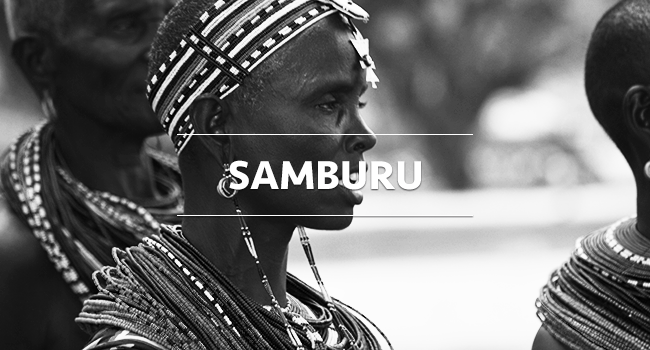Samburu

As part of our mandate to promote and defend human rights across the region, the EACLJ has been working with the Samburu Girls Foundation to help the cause of the girl child in the Samburu Community of Kenya. The Samburu Girls Foundation is a non profit organisation founded by Dr. Josephine Kulea. They focus on rescuing girls from child marriages, beading and Female Genital Mutilation (FGM). The EACLJ has partnered with the SGF to conduct rescue missions, education programs focused on teaching the community about the dangers of FGM and early child marriages as well as providing legal services for cases involving FGM and early child marriages.
The Samburu are nomadic pastoralists found in the Northern region of Kenya. They are close relatives of the Maasai. Both speak the Maa language and both are among the few African tribes to remain culturally authentic by holding onto their traditional way of life. For the Samburu, this means a highly patriarchal society where men have authority over women in all aspects of society.
Women in this community get their rights infringed upon on a daily basis. Many are not aware that their rights are being denied them because to them, it’s normal. It’s culture. It’s tradition. Girls as young as nine years are sexually active because young morans are not allowed to have sex with girls who are circumcised. As a “compromise”, their culture allows them to pick any young girl they desire and then “bead” them. The practice of beading is when a moran gives a young girl a “gift” of beads that she then wears as a symbol that she now belongs to him (for sexual purposes). This usually happens with the blessing of the girl’s parents. They would even build the girl a manyatta (a hut) where her and the moran can carry on whenever he feels like it.
Once circumcised, the beads come off and the young girl is now considered a woman. After girls have undergone Female Genital Mutilation (FGM) they are expected to get married immediately. The fact that they are still children does not exempt them. Every other day, every other week, young girls are first circumcised and then married off to men, often many years (30 or 40 years) their senior. Cases have been reported of 9-year-old girls being given in marriage to men as old as 78 years. In the Samburu culture, young girls are looked at by their parents as a means to make money, through the dowry they will receive by giving them in marriage.
When you see a samburu girl wearing an earring with a chain connected to it, it means that she has undergone FGM and is now married. Early marriages are a big threat to the human rights and well being of children. It denies the child an opportunity to grow and empower themselves. These girls are denied their basic right to an education, health, protection and development. Many times the girls are forced into it. They only go along with it because they wouldn’t want to embarrass their parents and community. Young girls barely understanding their own anatomy should not be forced into conjugal relations with much older partners. This is tantamount to sexual abuse because neither their body nor their mind are prepared for that.
There is a lot of work that needs to be done. The community needs to be sensitized about the dangers of these brutal and harmful practices. Forced sexual encounters can lead to great psychological damage. The girls are likely to experience marital rape and face a higher risk of contracting HIV and other sexually transmitted diseases. Since they have little say in their marriage, they cannot talk to their husbands about contraception, when to have children and how many. The lack of a proper education means that, unfortunately, many of the young brides will grow to join in perpetuating these same cultural practices that advance cruelty against women.
The Marriage Act 2014 prohibits engagement and marriage to or between persons who are below the age of 18. The law imposes stiff penalties to those who violate it. Some of these practices are done under the supervision of local administration officials. Some area chiefs are complicit in taking child brides for themselves. If things are going to change, strict action needs to be taken against those who would break the law, even if they are governmental officials.
There has to be more political will to eradicate child marriage. The government, community groups and individual families need to come together and provide solutions that will help end this outdated practice. Work needs to be done to convince the community as a whole to view the girl child as something more than capital for exchange. They need to see that removing future generations from schools only perpetuates the cycle of poverty, slowing the economic growth of the community and nation as a whole.





